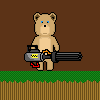Hi,
Okay, let me cover the basics as they connect to one another and also help set your mind at ease on a few things.
Sure, Java is a "good" language, whether certain programmers like it or not. Java is powerful and broad in capabilities. In my opinion it is the best cross-platform language, but I must say that game engines and libraries really make quite a bunch of languages suitable for cross-platform implementation according to what they are designed to use. This is why many languages are of serious consideration, being that game engines, SDKs, and specialized libraries put ability in your hands. These tools help you to better learn a language because they frame your coding habits and pipeline. This is one of the most important strategic thinking points in your whole career to remember and exploit. What makes a language effective for you will be all the support around it, software, tools that you learn to make, and community help - far more than the language itself.
Take a look at jMonkey, for example. It has some very standard libraries which you really need to learn eventually anyhow, track record of games which demonstrate the game engine, cross-platform built into the development pipeline, and made to guide you in learning version iterations and modularization so you can reuse a lot of existing code which you create.
mk.jr.fan, you have some coding experience with languages, so go right to a framework and not flicker around the fundamentals of coding anymore. Make a very simple 2D game, get it playable ASAP, and implement it cross-platform. From there, make a second, third, forth game, and so forth. Rabbit hopping is no good, so lay a foundation and get to building on it.







